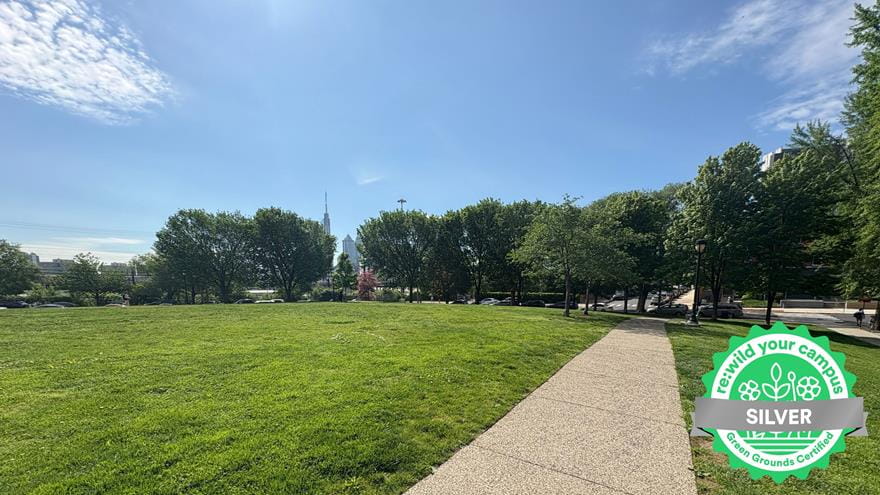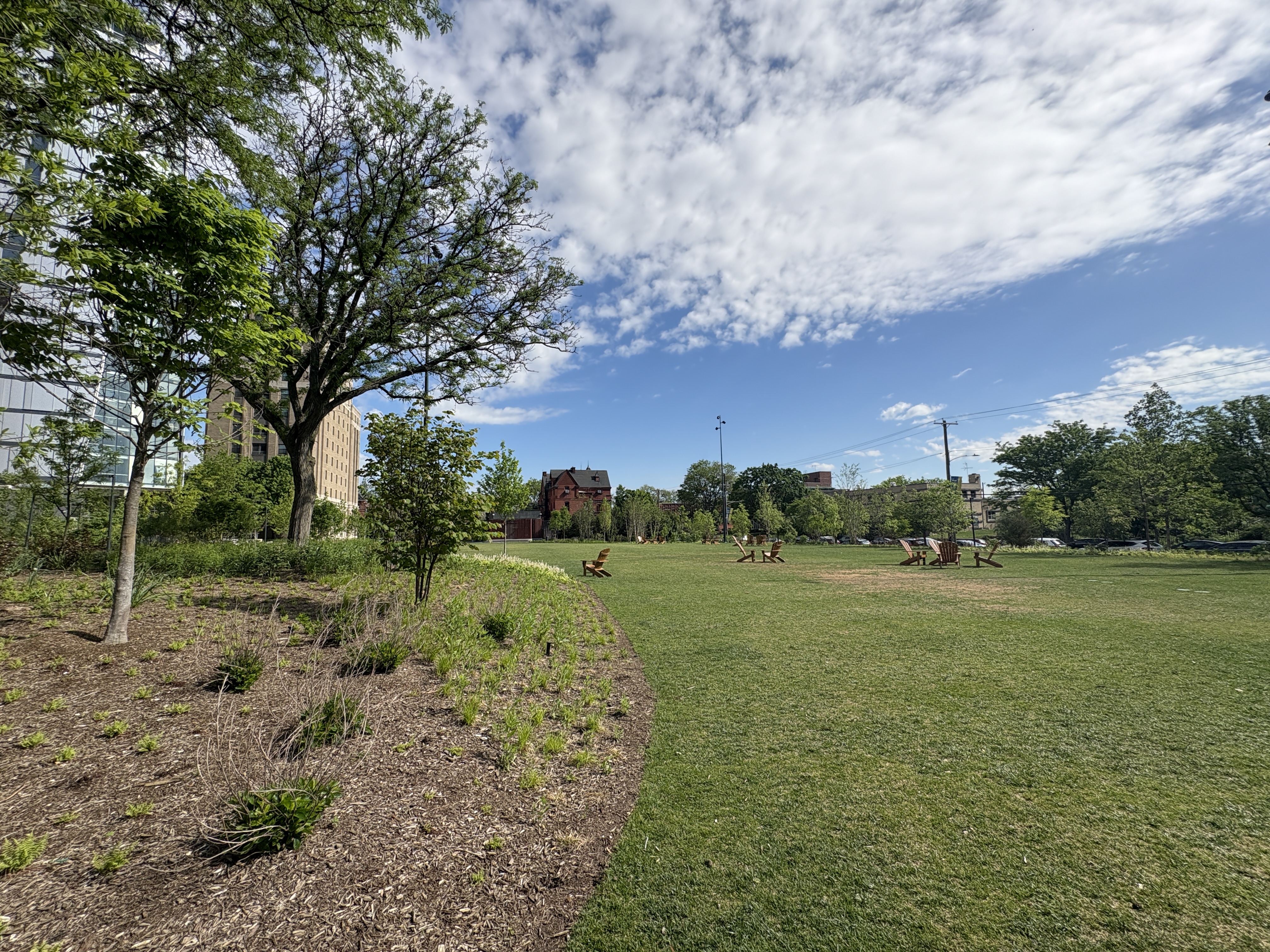Drexel Achieves Green Grounds Certification for Campus Environment

- Drexel’s College of Nursing and Health Professions Receives $1 Million for Scholarships from the Bedford Falls Foundation – DAF to Address Nursing Workforce Shortage
- Laura Turner to Join Drexel University as Senior Vice President for Institutional Advancement
- When the World Changes, Drexel Changes With It
- U.S. Department of Education Provides Final Approval of Drexel and Salus Merger

The turf on Drexel Park was initially tested as part of a student-driven organic turf management pilot project that has since expanded to incorporate all of the University City Campus.
Drexel University has been working to eliminate toxic herbicides while increasing organic land care and fostering biodiversity — and recently received an award for its efforts. The University now has a Green Grounds Certification from Re:wild Your Campus, an advocacy group promoting sustainable living environments on college campuses.
As part of this certification, Drexel achieved the “Silver tier,” meaning that 70% of the University City Campus grounds does not actively use synthetic herbicides. The rating also means that the University has committed to meeting several other criteria related to student collaboration, recordkeeping and using more sustainable products and equipment.
This is the first time Drexel has applied to be evaluated for the ranking, which itself is also fairly new. Drexel is the first — and only — Silver campus certified by Re:wild Your Campus. It is one of 12 total college or university campuses to be certified, and one of two to receive the Green Grounds Certification this year.
The University’s Grounds Department maintains all campus turf, courtyards, landscape beds, outdoor hard-surfaces, seasonal flower displays and trees on the University City Campus. As part of the evaluation process, it has committed to procuring new electric landscape maintenance equipment to begin phasing out those dependent on fossil fuels, and is reducing synthetic fertilizer use and transitioning to Organic Materials Review Institute (OMRI) certified organic fertilizers. It will also track and record fertilizer and pesticide usage, including the occasional use of more aggressive (but still organically based and OMRI-listed) herbicides, while eliminating glyphosphate-based herbicides entirely.

Drexel’s newest greenspace on the former Myers Hall site opened in November with built-in sustainability features like the use of native shrubs, plants and trees, and LED lighting.
“I think it’s important to show that we are not just giving lip service but are holding ourselves accountable by certifying. Part of this certification requires detailing what products we’re using and when, so that will help us to monitor inputs over a year’s time,” said Scott Dunham, director of the Grounds Department.
Also required is a commitment to collaborating and engaging with students about campus land care — which had already been happening with the involvement of Re:wild Your Campus. As noted in this 2024 article, for example, Dunham and his team collaborated with students from the Toxic Free Philly Drexel committee within the Drexel EcoReps student organization affiliated with Drexel’s Climate & Sustainability team. The students tested the efficacy of an organic turf management model at Drexel Park and Lancaster Walk, two green spaces on the University City Campus, with successful results. Now, Drexel has initiated those practices across all greenspaces and has stopped using synthetic herbicides and fertilizers when possible. Through that process, the students got involved with Re:wild Your Campus.
“This Silver recognition is not part of that project but rather an extension of our moving to an organic-based turf maintenance model. This seemed a good way to ‘make it official’ and keep us accountable to continue over the years as we look to recertify,” said Dunham.
More information about Drexel’s greener efforts in grounds projects and other initiatives can be found on the Climate & Sustainability website. And with the EcoReps leaders working closely with professional staff from Climate & Sustainability, and the Grounds Department’s move to achieve certification from an organization that students had worked with, this Silver ranking is just the latest in those teams’ collaborations with students on spaces used and loved by all Dragons.
“Students should know about this to help retain and attract other students interested in Climate & Sustainability here at Drexel,” said Bo Solomon, executive director of Climate & Sustainability.
=
In This Article
Drexel News is produced by
University Marketing and Communications.
